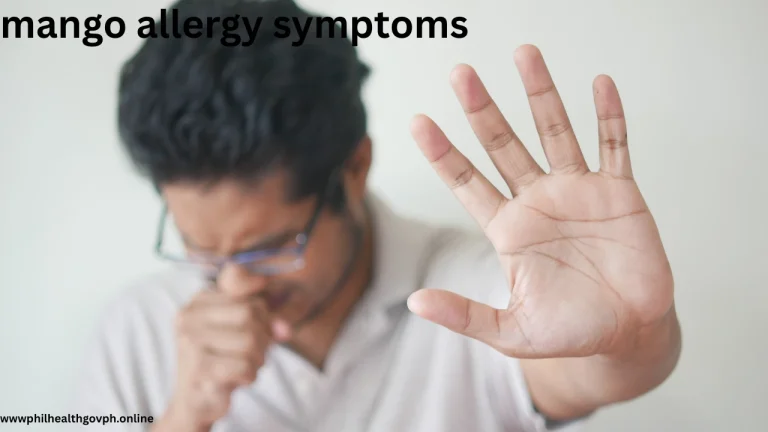Kids Flu Medicine for Night and Daytime Symptom Control
When flu season strikes, children are among the most affected. Weak immune systems, school exposure, and seasonal weather changes make them easy targets. For parents, finding the right kids flu medicine becomes urgent. The goal is to reduce discomfort, help the body recover, and avoid complications — all while ensuring the medicine is safe for little ones.
This detailed guide covers everything from types of flu medicine, proper dosing, natural alternatives, safety tips, and when to consult a doctor.
You May Like: theraflu medicine
What is the Flu in Children?

The flu, or influenza, is a viral infection that spreads easily among kids. It affects the nose, throat, and sometimes the lungs. Children are often the first to catch it and the fastest to spread it.
Common flu symptoms in kids:
-
High fever
-
Chills and sweating
-
Dry or wet cough
-
Body and muscle aches
-
Sore throat
-
Nasal congestion
-
Fatigue and irritability
-
Vomiting or diarrhea (sometimes)
Flu symptoms usually appear suddenly and last between 5 to 7 days. However, some children can feel tired for weeks. That’s why kids flu medicine plays an essential role in managing symptoms and avoiding further health issues.
Why Kids Flu Medicine Matters
Most flu infections resolve naturally. But children can struggle with pain, congestion, and fever. Their smaller bodies lose water quickly, and prolonged symptoms can lead to dehydration, poor appetite, or complications like pneumonia.
This is where kids flu medicine becomes essential. While it won’t kill the virus, it will help ease symptoms like fever, cough, and body aches so kids can rest, eat, and heal faster.
Types of Kids Flu Medicine
There are various types of flu medicine tailored to children’s needs. Each one targets a specific symptom and is designed to be safe for growing bodies.
1. Fever and Pain Relief Medicines
These help control high temperatures and muscle pain. They’re the most commonly used kids flu medicine during the first few days of illness.
-
Acetaminophen: Reduces fever and pain; safe for babies 2 months and older.
-
Ibuprofen: Also relieves inflammation; safe for babies 6 months and up.
Aspirin is not safe for children and should never be used. It can lead to a rare but deadly condition called Reye’s Syndrome.
2. Cough Suppressants and Expectorants
Coughing helps clear mucus, but a constant cough can prevent rest. Some flu medicines help reduce coughing, while others loosen thick mucus for easier breathing.
-
Dextromethorphan: Calms the cough reflex.
-
Guaifenesin: Helps break up chest congestion.
Many syrups combine both for daytime and nighttime relief.
3. Decongestants
Flu often causes stuffy noses. Decongestants reduce swelling in nasal passages to allow easier breathing.
-
Phenylephrine: Found in many over-the-counter cold and flu medicines.
These aren’t usually recommended for kids under 6 without a doctor’s advice. Side effects can include rapid heartbeat and jitteriness.
4. Antiviral Prescription Drugs
Some cases require prescription-only medication.
-
Oseltamivir (Tamiflu): Works best within 48 hours of symptom onset. It shortens the duration and severity of the flu.
This medicine is used for children with a high risk of complications, such as asthma or immune disorders.
Choosing the Right Kids Flu Medicine
Parents often feel overwhelmed by the options. Here are a few steps to simplify the process:
-
Check the age label: Medicines are made for different age groups.
-
Match symptoms: Only treat what your child has. Avoid giving multi-symptom drugs for mild cases.
-
Avoid duplicate ingredients: For example, don’t give two medicines that both contain acetaminophen.
-
Consult a pediatrician: Especially if your child is under two or has other health issues.
Make sure to store all medicines safely out of children’s reach and follow storage instructions to maintain effectiveness.
Kids Flu Medicine Dosage Table
Correct dosage ensures safety and effectiveness. Here is a general guide for common medications:
| Age Group | Acetaminophen (Every 4–6 hrs) | Ibuprofen (Every 6–8 hrs) |
|---|---|---|
| 2–6 months | Doctor’s advice only | Not recommended |
| 6–12 months | 80–160 mg | 50–75 mg |
| 1–3 years | 160–240 mg | 75–100 mg |
| 4–6 years | 240–320 mg | 100–150 mg |
| 7–11 years | 325–500 mg | 150–300 mg |
| 12+ years | Adult dose | Adult dose |
Always use the measuring cup or syringe that comes with the bottle. Never use kitchen spoons.
Natural Alternatives to Kids Flu Medicine
Not every case requires pharmaceutical treatment. Many parents try natural remedies to reduce symptoms and boost immunity.
Common natural approaches:
-
Honey for cough: One teaspoon before bed for kids older than 1 year.
-
Steam: A warm shower or vaporizer helps with nasal stuffiness.
-
Chicken soup: Soothes sore throats and adds nutrition.
-
Fluids: Hydration helps thin mucus and fight fever.
-
Rest: One of the best ways to support healing.
These remedies don’t replace medicine but work well alongside mild over-the-counter options.
Kids Flu Medicine Safety Tips
Medication safety is critical. Children are more sensitive to drug ingredients and dosage mistakes can be dangerous.
Follow these guidelines:
-
Use medicine only when needed: Don’t over-medicate for mild symptoms.
-
Avoid aspirin: It’s unsafe for children.
-
Stick to child-formulated products: Adult medicine is stronger and harmful in small bodies.
-
Avoid mixing medications: Especially those with overlapping active ingredients.
-
Check expiration dates: Expired meds may be ineffective or dangerous.
If your child shows signs of an allergic reaction like rash, swelling, or vomiting — stop the medicine and seek medical help immediately.
When to See a Doctor
While flu symptoms usually pass in a few days, there are times when professional care is needed.
Call your doctor if:
-
Fever lasts more than 3 days
-
Breathing becomes rapid or difficult
-
Lips or nails turn blue
-
Child refuses to eat or drink
-
Vomiting continues for more than 24 hours
-
Child is overly sleepy or hard to wake
-
Flu symptoms worsen suddenly
High-risk children, such as those with asthma, diabetes, or heart issues, may need antiviral medicine early.
Preventing the Flu in Kids
Prevention reduces the need for flu medicine. Healthy habits and simple steps can protect your child during flu season.
Flu prevention tips:
-
Annual flu shot: Recommended for everyone over 6 months.
-
Handwashing: Teach kids to wash with soap before eating and after school.
-
Disinfect surfaces: Flu viruses survive on toys, doorknobs, and counters.
-
Avoid sharing drinks or utensils: Viruses spread easily through saliva.
-
Keep sick kids home: Prevents the spread to others and gives time to recover.
Good sleep and a healthy diet also strengthen the immune system naturally.
Best Practices for Administering Kids Flu Medicine
Giving medicine the right way ensures better results.
Here’s how to do it correctly:
-
Explain to the child what the medicine is for. It helps reduce fear.
-
Use reward systems (like stickers) for young children to make medicine time easier.
-
Stick to a schedule: Set reminders to avoid missing doses.
-
Keep a record of what was given and when.
Be patient. If your child spits it out, wait and try again in a few minutes. Don’t double the next dose.
Trusted Kids Flu Medicine Brands
There are many brands in the market. Choose ones known for safety, quality, and pediatric recommendations.
Popular ones include:
-
Children’s Tylenol: Reliable fever and pain reliever.
-
Children’s Motrin: Long-lasting anti-inflammatory option.
-
Mucinex Children’s: Breaks up mucus.
-
Zarbee’s Naturals: Gentle, natural-based products.
-
Hyland’s 4Kids: Homeopathic options for mild symptoms.
Always review the packaging and ingredients before use.
Frequently Asked Question
What is the safest flu medicine for kids?
Acetaminophen and ibuprofen are safe options for reducing fever and pain when used as directed by age and weight.
Can kids take flu medicine and antibiotics together?
Only if prescribed. Flu is caused by a virus; antibiotics treat bacteria and won’t help unless there’s a secondary infection.
Should I give my child medicine for mild flu?
If symptoms are tolerable, fluids and rest may be enough. Use medicine for high fever, severe cough, or sleep disruption.
Are natural remedies enough for kids with the flu?
Natural remedies help with mild symptoms but should not replace proper medication if the child has a high fever or breathing difficulty.
Final Words on Kids Flu Medicine
When your child falls sick with the flu, your first instinct is to help them feel better fast. Kids flu medicine offers quick relief and reduces symptoms so your little one can rest and recover comfortably. From fever reducers to cough syrups and natural options, the choices are many — but understanding the right use is key.
Keep safety, age, symptoms, and dosage in mind. If in doubt, always consult a pediatrician. Prevention, however, is still the best medicine. Teach hygiene, give nutritious food, and make annual flu vaccines a habit.
People Also Read: gingerbread nails disease





